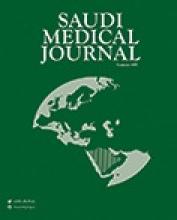To the Editor
We read with interest and congratulate Dr. Almutairi for the recent publication of his article entitled “Culture and language differences as a barrier to provision of quality care by the health workforce in Saudi Arabia.1 Dr. Almutairi expressed his strategies to improve educational and orientation programs regarding the culture and language in Saudi Arabia to address the language barrier issue in healthcare settings. In fact, we are also confronted with a similar situation in Taiwan. As Chinese is the main language of communication in the Taiwanese healthcare system, foreign residents (2.3% of the total population) often face communication-related difficulties in explaining their health problems to Taiwanese care providers’ sites.2,3 Thus, we wish to share our Taiwanese experience where we found the use of simple information and communication technologies (ICT) tools, such as Skype, Google Hangouts, Google translator, and mobile phone camera that was found to be quite useful in settings explained by Dr. Almutairi.
We have observed several foreigners in Taiwan using smartphone to type-in English text and translate into Chinese for explaining their health-related problems, or condition to care providers. For instance, recently, we found a family who visited a clinic for the treatment of their 6-year-old girl’s rash on her chest. The girl was diagnosed with ‘herpes zoster’ by a dermatologist. However, due to the language limitation (as the care provider was Chinese speaking), the dermatologist could not clearly explain to the girl’s parents about the problem and its effects on others. The girl and her parents planned to travel to Vietnam on the following day after the problem was discovered. Being worried, they took a picture of the affected skin area and sent it to an English-speaking doctor in Australia for his opinion. The girl’s parents and the doctor discussed the girls’ condition through Skype. The doctor advised them not to travel Vietnam for 2 weeks, as ‘herpes zoster’ is contagious. The family canceled the Vietnam trip to avoid potential problems that may arise.
As we can see, in the above situation, the use of simple technologies, such as Skype and Smartphone camera proved to be of immense use. These modern IT gadgets can provide users with useful tools for the outreach of the healthcare facility despite language and geographical barriers. Therefore, we advocate to promote the use of ICT tools among healthcare stakeholders, in addition to educational and orientation programs regarding language as suggested by Dr. Almutairi.
Reply from the Author
No reply was received from the Author.
- Copyright: © Saudi Medical Journal
This is an open-access article distributed under the terms of the Creative Commons Attribution-Noncommercial-Share Alike 3.0 Unported, which permits unrestricted use, distribution, and reproduction in any medium, provided the original work is properly cited.






